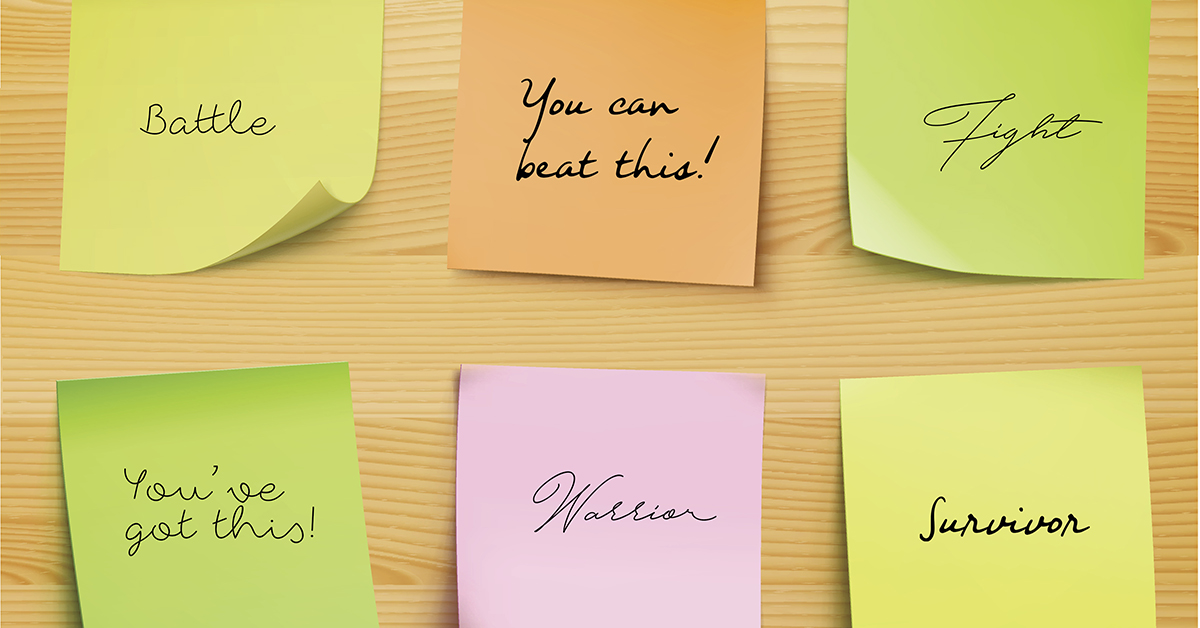
Finding the Right Words to Talk About Cancer
-
When someone we care about is diagnosed with cancer, we often struggle to find the right words. We worry about saying the wrong thing. We reach for metaphors like fighting a battle or being a warrior.
These images can be meaningful for some people. But for others, they may feel overwhelming—or simply not reflect how they view their experience.
There’s no one right way to talk about cancer. Here are a few things to consider, whether you're someone with the disease or someone trying to help a friend or loved one with it.
If you have cancer
You have the right to choose how you describe your journey.
Some people find strength in talking about a battle or a fight. Others might prefer not to use aggressive words or metaphors at all—and that's OK. They might opt instead for words like "living with cancer" or "following the treatment plan."
If you feel comfortable, share your preferences with your family, friends, and care team. For example, it's perfectly fine to say something like, "I'd rather call this my cancer journey" or "Please don't think of me as fighting. I'm focusing on living each day."
How you deal with cancer—including the words used to describe the experience—is up to you.
If a friend or loved one has cancer
If you're talking with someone who has cancer, it can be hard to know what to say. The best thing you can do is follow their lead. Pay attention to the words they use—or simply ask: "How would you like me to talk about this with you?"
Even simple, heartfelt expressions—like "I care about you" or "I'm here for you"—can mean more than finding the perfect words.
Here are a few more helpful tips:
- Respect their privacy. Never share someone's diagnosis without their permission.
- Avoid commenting on physical changes, like weight loss or appearance.
- Let them guide the use of humor. If they find ways to laugh, join them.
- Avoid sharing stories about other people who've had cancer. Every cancer journey is different, and hearing these stories may not be helpful to your loved one.
- If you can't find the words for someone with cancer, say so—it's OK. But assure them that you're here to listen if they need you.
The way we talk about cancer matters. With kindness, respect, and care, you can offer real support—no matter what words you use.
